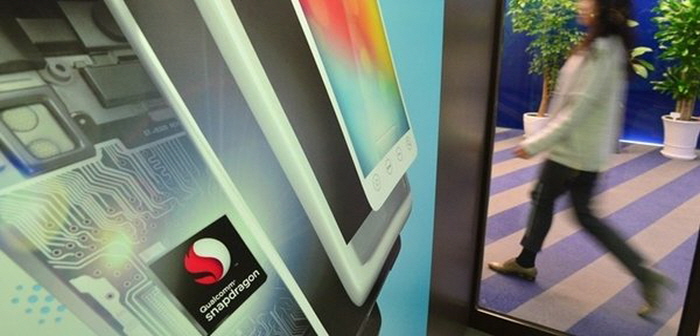Fair Trade Commission (FTC) has levied a fine of $849 million (1.03 trillion KRW) on Qualcomm for refusing to provide SEP (Standard Essential Patent) license to opposing chipset manufacturers and forcing unfair license contracts to cellphone manufacturers by holding supply of chipset as a hostage and violating fair trade laws.
Qualcomm opposed this fine immediately by declaring that decision made by FTC is clearly wrong and announced its intention to appeal. Second court debate on whether or not Qualcomm actually limited competitions with other cellphone and chipset manufacturers will be inevitable. A problem regarding application of FTA’s (Fair Trade Agreement) procedural protection measure between South Korea and the U.S. that was presented by Qualcomm has emerged as a new issue.
FTC has issued a corrective command to Qualcomm, which is a global telecommunication chipset and patent license business, and its two subsidiaries called QTI and QCTAP (These three businesses will be called as ‘Qualcomm’) for their actions of abusing their dominant position over markets and levied a fine of $849 million. It has come to a conclusion that Qualcomm has formed and maintained an unfair business model in order to build up its monopolistic strength over markets for license and chipset.
Qualcomm operates QTL (Qualcomm Technology Licensing) and QCT (Qualcomm CDMA Technologies) separately. Although it has obligations to provide SEP without any discrimination according to expansion of FRAND (Fair, Reasonable, and NON-Discriminatory), QTL rejected and limited its supplies of licenses to its opposing chipset manufacturers such as Samsung and Intel.
At the same time, QCT forced cellphone manufacturers such as Samsung, Apple, and LG to make license contracts with QTL while selling its modem chipsets to them. If cellphone manufacturers do not sign off on license contracts with QTL, QCT made cellphone manufacturers know that it can reject and stop supplying modem chipsets to them any time it wants.
Qualcomm made cellphone manufacturers to use all of its patents inclusively and at the same time it used their patents (cross-license) without any fair compensation.

On the 28th, Fair Trade Commission has levied $849 (1.03 trillion KRW), which is its biggest fine ever, on Qualcomm for its unfair trade. Picture of Qualcomm’s lobby in South Korea on the 28th. Picture = Staff Reporter Kim, Dongwook | [email protected]
FTC explained that Qualcomm has completed a business model that limits competitions as its individual actions are closely connected to each other. It has monopolized chipset markets by refusing to provide SEP and forced cellphone manufacturers to use its licenses. It received patents of cellphone manufacturers for free and has built up its monopolistic power over chipset and license markets even more.
FTC has levied a fine of $849 million and issued wide-range corrective commands on Qualcomm. First of all, FTC told Qualcomm to engage in negotiations for license contracts faithfully when there are requests from chipset manufacturers so that it will provide SEP to its opposing chipset manufacturers without any discrimination.
Secondly it told Qualcomm not to force cellphone manufacturers to sign off on license contracts and to correct or delete clauses of related contracts. It also told Qualcomm not to use their patents for free and not to allow cellphone manufacturers to use its licenses inclusively and to renegotiate license contracts when there are requests from them. It is likely that South Korean and other major foreign cellphone manufacturers will try to renegotiate contracts with Qualcomm.
“Decisions made by FTC actually go against related laws.” said Qualcomm. “As soon as we receive resolutions from FTC, we are going to apply for suspension of execution of corrective commands and appeal to Seoul High Court. FTC and Qualcomm will battle against each other on whether or not there is illegality regarding Qualcomm’s actions at Seoul High Court.
It is likely that Qualcomm and FTC will battle against each other regarding whether or not Qualcomm limited competitions with other cellphone and chipset manufacturers, Qualcomm’s practice on its licenses, and size of fine. Along with these, procedural problems also emerged as a new issue.
Qualcomm proposed that FTC did not guarantee ‘American companies’ rights regarding lawful procedures of FTA’ and explained that it did not receive any guarantee of its rights to approach records of cases during FTA’s investigation and its rights to interrogate objections from witnesses. As FTC has been preparing this expecting that Qualcomm will bring up procedural problems, second legal battle between FTC and Qualcomm will be even fiercer.
Staff Reporter Yoo, Seonil | [email protected]